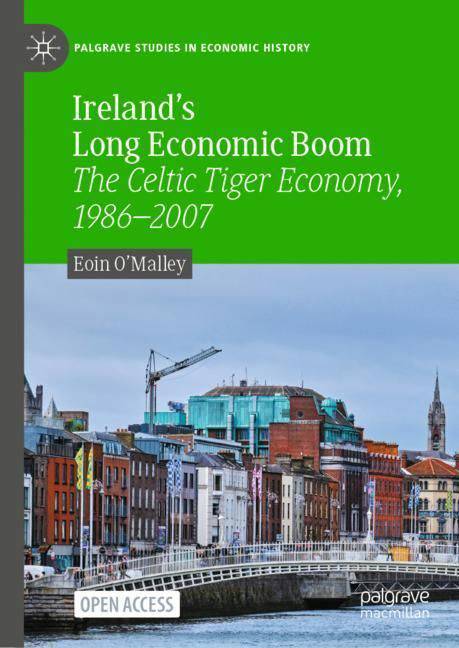
- Afhalen na 1 uur in een winkel met voorraad
- Gratis thuislevering in België vanaf € 30
- Ruim aanbod met 7 miljoen producten
- Afhalen na 1 uur in een winkel met voorraad
- Gratis thuislevering in België vanaf € 30
- Ruim aanbod met 7 miljoen producten
Omschrijving
This Open Access book examines the long economic boom experienced in Ireland between the late 1980s and 2007, analysing why this boom occurred.
The book situates Ireland as a relative latecomer to economic development, with specific challenges and advantages inherent to this position. It discusses the risks involved in remaining reliant on foreign companies, exploring how in Ireland's case the rapidly growing economy required active, interventionist and imaginative policy measures rather than relying primarily on free market forces. The book also offers an estimation of the value of the net foreign earnings associated with different categories of exports after deducting the profit outflows and payments for imported inputs, revealing a number of findings about the importance of Irish indigenous companies and services during this time. It shows that Irish indigenous companies, assisted by industrial policy measures, played a significant part, as did the services sector, alongside the more visible and widely recognised role of foreign multinationals in high-tech manufacturing. Offering fresh insights and analyses more than 15 years after the long boom ended at the precipice of the global financial crisis, this book will be a useful resource for economic historians, scholars of political economy and macroeconomic policy, as well as those interested in modern Irish history more broadly.
Specificaties
Betrokkenen
- Auteur(s):
- Uitgeverij:
Inhoud
- Aantal bladzijden:
- 264
- Taal:
- Engels
- Reeks:
Eigenschappen
- Productcode (EAN):
- 9783031530692
- Verschijningsdatum:
- 31/03/2024
- Uitvoering:
- Hardcover
- Formaat:
- Genaaid
- Afmetingen:
- 148 mm x 210 mm
- Gewicht:
- 485 g

Alleen bij Standaard Boekhandel
Beoordelingen
We publiceren alleen reviews die voldoen aan de voorwaarden voor reviews. Bekijk onze voorwaarden voor reviews.











